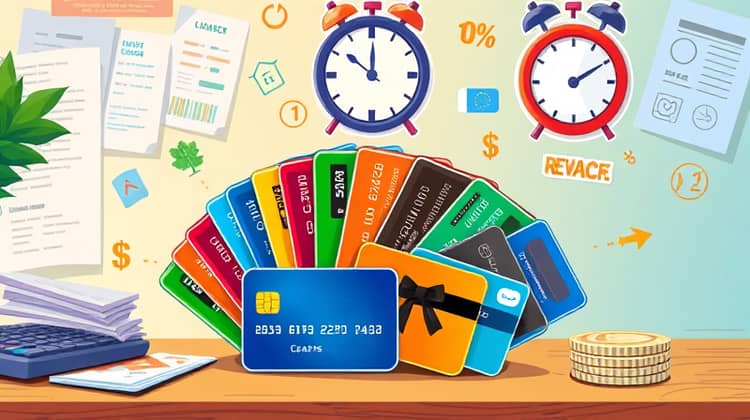In today's fast-paced world, having a credit card can be a necessity for many. However, not everyone qualifies for a credit card, and many applicants face rejection due to poor credit scores or lack of credit history. Understanding how to improve your odds of getting approved for a credit card can help open doors to better financial opportunities and rewards.
This article will provide you with actionable steps you can take to increase your chances of credit card approval. From grasping the importance of your credit score to timing your applications, we will cover essential strategies that can aid in your quest for credit.
Let's delve into the factors that can help improve your credit card approval odds.
1. Understand Your Credit Score

Your credit score is a numerical representation of your creditworthiness. It influences not just your credit card approvals but also the interest rates lenders offer you. A higher score generally indicates better credit history, which reassures lenders regarding your ability to repay borrowed funds.
Knowing your credit score can provide you a clear understanding of where you stand. You can check your score for free once a year through various websites or your bank. This allows you to assess if there are any factors that require attention before you apply for a credit card.
- Check your credit report regularly for accuracy.
- Be aware of the factors that affect your score, such as payment history, credit utilization, and length of credit history.
- Consider credit-monitoring services to keep track of changes in your credit score.
By gaining a firm grip on your credit score, you can take the necessary steps to improve it before applying for a credit card.
2. Know the Basics of a Credit Card

Credit cards are more than just a means of making purchases; they come with terms and conditions that dictate how they should be used. Understanding interest rates, fees, rewards programs, and payment deadlines is essential to making the most of your credit card.
Before applying, familiarize yourself with the basics of credit cards, such as annual fees, grace periods, and minimum payments. Knowledge of these factors helps you not only during the application process but also in avoiding common pitfalls that can lead to debt.
The right credit card can enhance your financial flexibility, improve your credit score, and even provide you with returns through cash-back programs or points for travel.
3. Do Your Research Before Applying

Before you submit a credit card application, take the time to research multiple options available to you. Different credit cards offer different rewards, interest rates, and fees, and it's crucial to find one that aligns with your financial needs.
Examine reviews and customer experiences related to the cards you're considering to gauge how well they meet user expectations.
- Compare annual fees and interest rates.
- Look at promotional offers such as introductory 0% APR periods.
- Assess the card's rewards program and how it fits into your spending habits.
By doing thorough research, you will be more equipped to make an informed decision and increase your chances of approval.
4. Avoid Applying for Too Many Cards

When trying to obtain a credit card, it's important to avoid submitting applications for multiple cards in a short period. Each time you apply, the lender will conduct a hard inquiry on your credit report, which can negatively affect your credit score.
Too many inquiries can signal to lenders that you're in desperation mode, which can result in higher rejection rates. Banks typically prefer individuals with a stable credit history and fewer hard inquiries, giving them confidence in your repayment ability.
Additionally, this practice can harm your credit score and reduce your chances of receiving a favorable interest rate or limit open less competitive card applications.
Therefore, focus on applying for one card at a time and only after ensuring you meet the preferred credit criteria.
5. Consider Secured and Starter Credit Cards

If you have limited credit history or a low credit score, applying for a secured credit card can be an excellent way to build or rebuild your credit profile. Secured cards require a cash deposit that acts as your credit limit, making it less risky for lenders.
Additionally, starter credit cards are often designed for those new to credit, offering lower limits and fewer perks but increasing your chances of approval. Carefully managing these cards can eventually help you qualify for standard credit cards in the future.
Both options provide an opportunity to gain experience managing credit responsibly, which will ultimately improve your chances of securing higher credit limits and more valuable rewards in the future.
6. Correct Credit Report Errors

Errors on your credit report can have detrimental effects on your credit score and your overall credit profile. Regularly reviewing your report can help you identify any inaccuracies that may harm your creditworthiness.
If you discover any errors, make sure to dispute them immediately. Providing supporting documents can often help resolve these issues effectively.
7. Get a Co-signer

Having a co-signer with good credit can significantly improve your chances of approval for a credit card. A co-signer agrees to take on the responsibility of repayment in case you fail to meet your payment obligations, which reduces the risk for lenders.
Choosing someone with a solid credit profile means they will help strengthen your application and provide additional assurance to the credit card issuer. This can lead to better terms and conditions, including lower interest rates or higher credit limits. However, be cautious as missed payments can negatively impact your co-signer's credit as well, so it's important to maintain discipline in managing your credit responsibilities.
Having a trusted co-signer can provide not just a better shot at approval, but also a learning opportunity for better financial management. They might also offer guidance based on their experience with credit cards, which could be invaluable as you begin your journey.
8. Opting for Store Credit Cards

Store credit cards are often easier to qualify for compared to traditional credit cards. Many retailers offer these cards with special discounts and promotions that encourage consumers to apply. While they typically have lower credit limits, they can serve as a gateway to building a positive credit history.
However, it's critical to keep in mind that these cards often come with high-interest rates and potential fees, so ensure that if you choose this route, you pay off any outstanding balances promptly.
9. Timing Is Everything

Understanding when to apply for a credit card is a fundamental strategy that often goes overlooked. Timing your application closely to significant events in your financial life, like income increases or reductions in debts, may lend you a more favorable outcome.
- Avoid applying during periods when your credit score may dip, like following an extensive purchase or other hard inquiries.
- Apply during a time when your credit utilization is low, indicating financial responsibility.
- Consider applying after lengthy and responsible management of previous credit accounts.
By strategically timing your applications, you can maximize your chances for approval and other benefits in the long term.
10. Improve Your Odds for Approval With an Excellent Financial

Maintaining a healthy financial profile is crucial to increasing your odds of credit approval. Demonstrating sound financial habits and stability can reassure lenders about your reliability as a borrower.
This encompasses regular savings, minimal debts relative to income, and timely monthly payments, which are key to achieving financial wellness.
- Keep your credit card balances low relative to your limits.
- Make payments on time without fail.
- Consider maintaining a savings account as a buffer for unexpected expenses.
By building and maintaining a strong financial foundation, lenders will view you as a responsible applicant, thereby improving your chances of credit approval.
Conclusion

In conclusion, improving your credit card approval odds is a multi-faceted approach that requires time, research, and attention to detail. Understanding your credit score and staying informed about the basics of credit cards are essential first steps in this process.
By avoiding unnecessary applications, researching the right card for you, and perhaps utilizing secured or store cards, you can enhance your credit profile steadily. Implementing practices that correct errors, engage co-signers, and monitor your financial behavior will further strengthen your credibility as a borrower.
Ultimately, timing your applications wisely and cultivating a robust financial profile will round off this strategy, ensuring that you're not just seeking approval but also setting up a strong foundation for your future financial endeavors.














